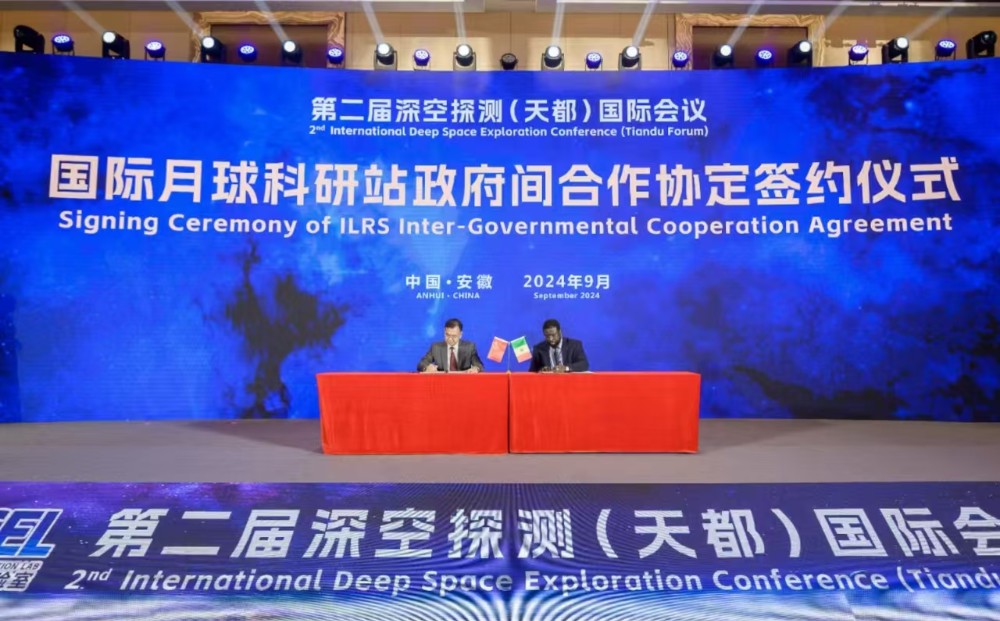HELSINKI — Senegal’s space agency signed an agreement on cooperation on the International Lunar Research Station Thursday, swelling the ranks of the China-led project.
Maram Kaire, head of the Senegalese Space Study Agency (ASES) and Li Guoping, chief engineer of the China National Space Administration (CNSA) signed the agreement on cooperation in the International Lunar Research Station (ILRS) at second international conference on deep space exploration (Tiandu) in Tunxi, Anhui province, Sept. 5.
The agreement came as Chinese President Xi Jinping held talks with Senegalese President Bassirou Diomaye Faye. The latter is visiting for the Beijing Summit of the Forum on China-Africa Cooperation (FOCAC) and a state visit.
China aims to build a basic robotic ILRS by 2035, with five launches to establish power, communications and other infrastructure. An extended station capable of long-term human habitation is planned for 2045.
Senegal joins Russia, Venezuela, Belarus, Pakistan, Azerbaijan, South Africa, Egypt, Nicaragua, Thailand, Serbia and Kazakhstan as national-level ILRS participants.
Senegal has a modest space industry but is focusing on satellite technology. Its first satellite, the Gaindesat-1A nanosat, launched on a Falcon 9 rocket Aug. 16 from Vandenberg Space Force Base. It was developed in partnership with University Space Centre of Montpellier (CSUM). The West African nation is also developing international partnerships and educational initiatives.
New subnational and international partners
The China-led ILRS also added a number of subnational entities and firms to its list of partners at the Tiandu conference. Institutions from the United Arab Emirates (Orbital Space), Serbia Astronomical Observatory Belgrade), Switzerland (Spacetalk SA), Indonesia (University of Bandar Lampung), Pakistan (National University of Sciences & Technology), Panama (Space Science Innovation Center of Panama) and South Africa (South African Radio Astronomy…
Read the full article here

